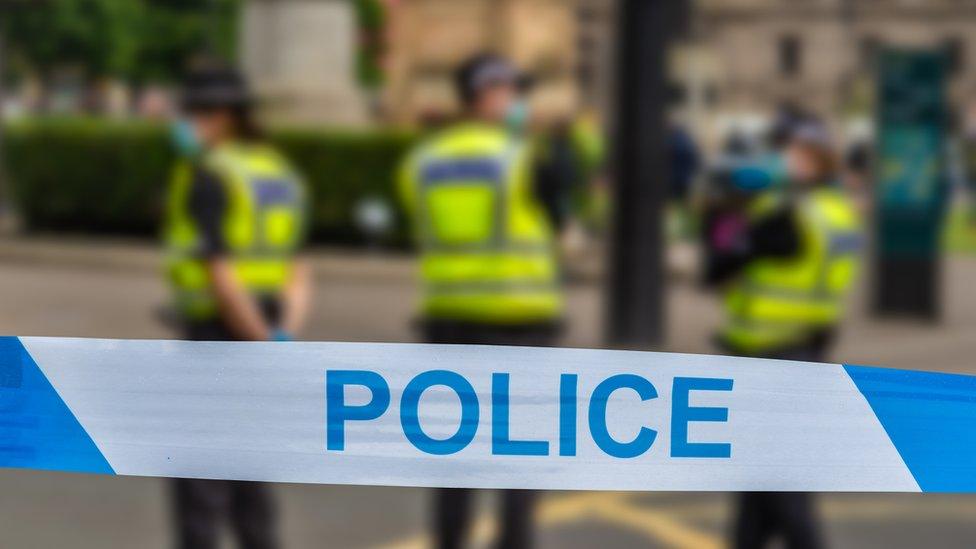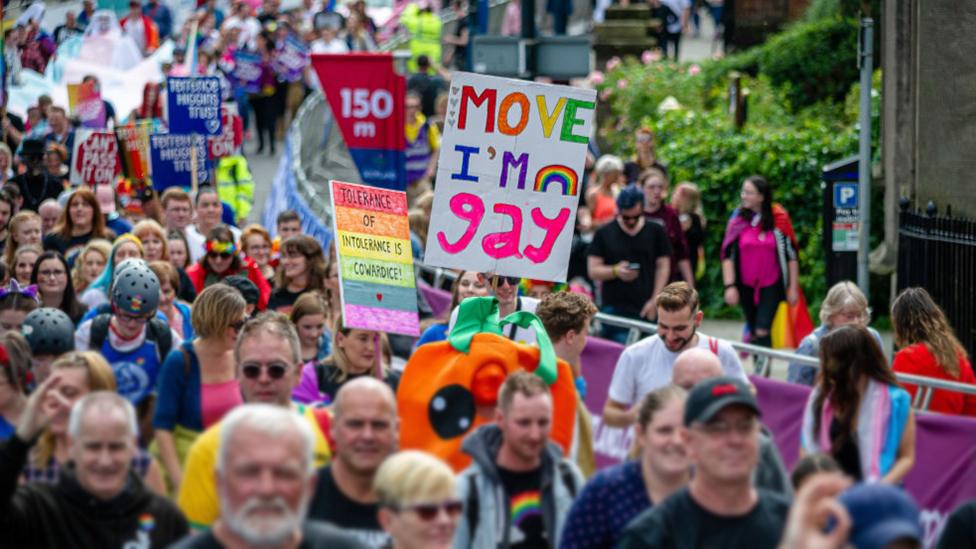Watchdog says Police Scotland do not know scale of hate crime
- Published

Police Scotland do not fully understand the scale, nature and impact of hate crime, the police watchdog has said.
A report said, external there were recurring issues to blame, including a lack of training, limitations of IT systems, and problems with data collection.
General under-reporting and problems with third-party reporting of hate crime were also significant issues.
The force said it listens to victims and will investigate the circumstances "thoroughly and professionally".
Fifteen recommendations were made by the watchdog, and Police Scotland has started work to address the issues raised.
The watchdog, HM Inspectorate of Constabulary in Scotland (HMICS), said progress would be monitored.
HM Chief Inspector of Constabulary in Scotland, Gill Imery, said one area of concern was shortcomings around third-party reporting, where those who believe they have been victim to a hate crime can report it at designated places within the community, external without initially speaking to the police.
This can include, for example, by reporting at a leisure centre or charity.
Ms Imery said many people were not aware this was an alternative to speaking directly to the police in the first instance.
'No coherent strategy'
Another issue she highlighted was that hate crime was not visibly a priority for the force.
She said there was no dedicated unit for investigating allegations of hate crimes, and that officers who were themselves subjected to hate crime while on duty sometimes failed to get adequate support.
Police Scotland IT systems also hampered efficiency in dealing with hate crimes - with officers having to enter details into different databases, making it difficult to identify trends.
The inspectorate noted that a new IT system was expected to be rolled out, which would help this.
Ms Imery praised local policing's response to hate crime reports as being particularly strong, but she said there was "no coherent overall strategy that underpins efforts to prevent and detect hate crime".
"There needs to be a consistent level of response and support for victims so they have the confidence required to report hate incidents, particularly if it is not the first time they have been subjected to such behaviour," she said.
How many hate crimes have been recorded?

Police define hate crime as any crime which is perceived to have been motivated by malice and ill-will towards someone based on race, religion, disability, sexual orientation or transgender identity.
A hate incident may be recorded instead when the information available to the police is insufficient to demonstrate a crime has been committed.
In 2019-2020, Police Scotland recorded 6,448 hate crimes and 6,745 hate incidents. HMICS noted that not all hate crimes or incidents would be reported.
Ms Imery also said that the situation had changed since the inspectorate first decided to carry out the review in 2019.
Then, she said, it was recognised that prejudice, division and hatred could increase across the UK due to the changing political and social environment and the increased prevalence of online abuse and intolerance.
However, she added: "What we did not anticipate was that issues of diversity and equality would be magnified during the timeframe of this inspection due to the unequal impact of Covid-19 on different parts of society and by an increase in protests around the world about racism."
'Under-reported'
Chief Supt Linda Jones said: "Despite a 3.9% increase during the last year, we know hate crime remains under-reported and urge anyone who has experienced it or witnessed it to tell us, either directly or via the network of third-party reporting centres across Scotland."
She also said the force would strive to improve how it represents, reflects and serves communities.
Chief Supt Jones added: "This is vital to maintain and build the strong relationship of trust (which) policing has with the public and ensure people feel able to report hate crime so offenders can be held to account.
"We are therefore not complacent and are working hard to better understand the full scale of the problem and implement the HMICS recommendations."